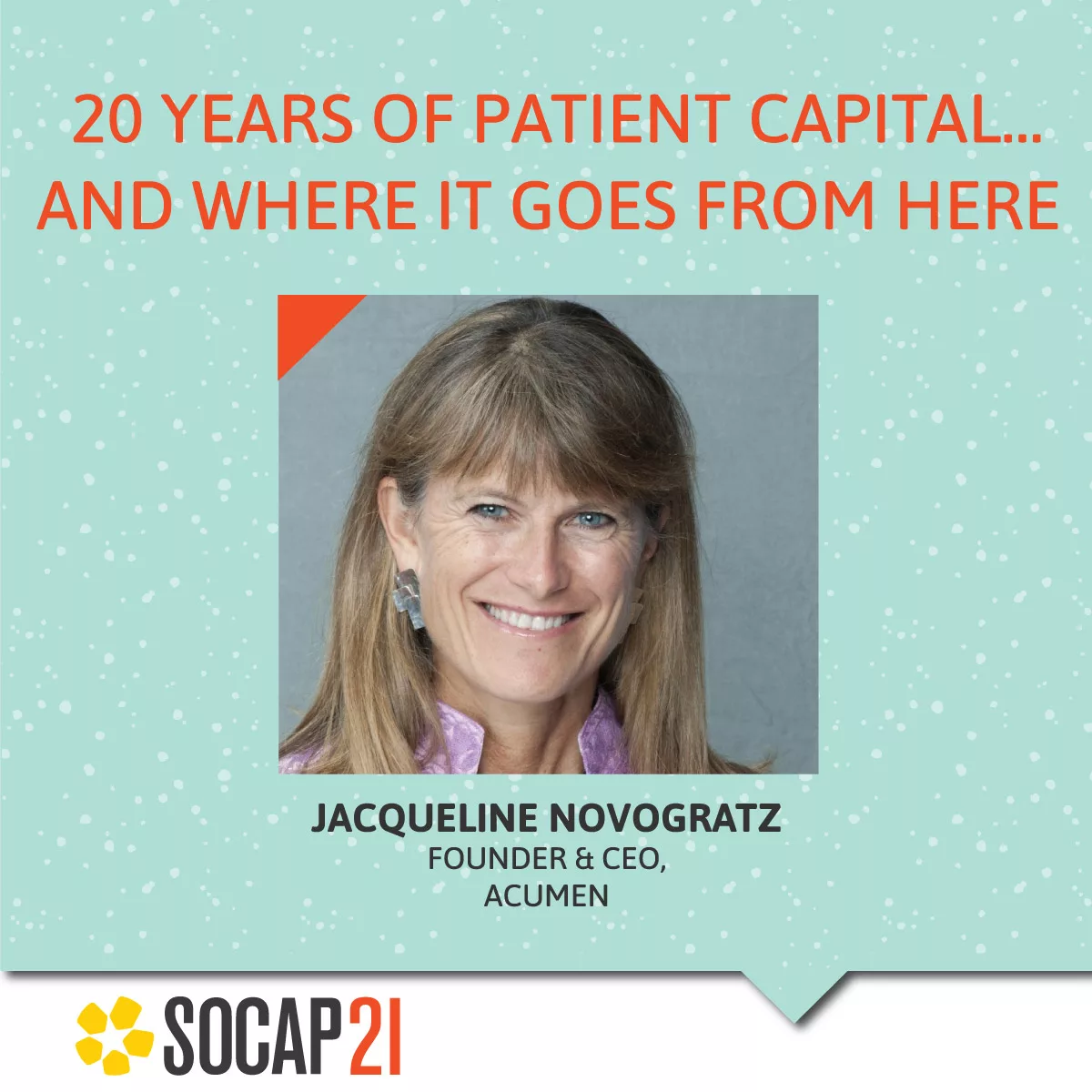From SOCAP21: 20 Years of Patient Capital … And Where It Goes from Here
For the last two decades, Acumen has used philanthropic capital and leveraged the power of markets to help solve problems of poverty. When Jacqueline Novogratz founded Acumen in 2001, few people were familiar with the term “impact investing,” and the organization has been a leader in collaborations that direct capital to social enterprises around the world.
In this SOCAP21 session, Novogratz shares data, reflections, and anecdotes to highlight how patient capital has enabled impact to thrive, where Acumen and others have fallen short and what we can learn from those moments, and Acumen’s vision for the future of patient capital over its next 20 years. As Novogratz says, the world is facing four defining challenges: a catastrophic climate crisis, severe inequality, growing divides within and among nations, and a lack of consensus about what is true.
“This is a time where we all have to step back and reimagine our systems to move profit from the center of everything and insist on putting our shared humanity and the sustainability of the Earth there. It’s also a time for each of us to step back and ask: What more can we ourselves do?”
Jacqueline Novogratz, Acumen
In 20 years, Acumen has invested $132 million in nearly 150 companies across 13 nations and eight sectors. During that time, the organization has shaped methods for addressing problems of poverty rather than turning to just philanthropy or traditional investment, making long-term, philanthropic-backed investments in companies solving tough issues of poverty that are accompanied with significant management support and reinforced by a commitment to measure impact. That capital returned is reinvested in other innovations, Novogratz says.
“Too much of our capital is flowing to the safer places,” she says. “What we really need to do is insist that capital is flowing to where the needs are greatest.”
As Acumen hit 20 years during the COVID-19 pandemic, the organization took time to reflect on lessons from its investment work and how it could adapt to improve its performance and enhance the impact of patient capital while maintaining a balanced perspective on returns. For every dollar invested, Acumen assumes it will get 86 cents back — a fact that she says some can see as a loss while others view it as a 14-cent investment in positive social and environmental impact.
“For that 14 cents, we have seen truly outsized impact in ways that we hadn’t imagined at the beginning,” Novogratz says. “Not only are we able to see how patient capital and investing can build companies that are both profitable and impact millions of people, but as I said they can change entire systems, structures, local economies.”
Patient capital can play a unique and important role in four areas, she says: building new markets, creating blueprints for public goods, correcting market inequities, and strengthening fragile economies. It’s also an effective way to create collaborations that incorporate local communities of business leaders who are most familiar with markets.
“This is about dignity not just for some, but for all of us,” Novogratz says. “For us to heal the world requires us all to focus one what we can give. If not us, who? And if not now, when?”
Watch 20 Years of Patient Capital … And Where It Goes from Here
Speaker:
Jacqueline Novogratz, Acumen Founder and CEO






